Connectivity woes bedevil The Weldon in Greenfield
| Published: 02-26-2024 2:51 PM |
GREENFIELD – As the city and the Franklin Regional Council of Governments work toward a digital equity plan, a focus group at the Weldon House identified connectivity challenges in the former hotel on High Street as their biggest challenge.
In anticipation of a digital equity plan detailing the city’s internet access challenges, more than a dozen residents met with city and FRCOG officials Feb. 21 to discuss the connection issues they’ve been facing, with old infrastructure and costs topping the list. The plan will help guide municipal decision-making and investments in internet access.
Digital equity is defined as ensuring “all individuals and communities have the information technology capacity needed for full participation in our society, democracy and economy,” according to FRCOG Senior Economic Development Planner Ted Harvey.
“This meeting at the Weldon is another piece of our outreach,” Harvey said. “The purpose of the digital equity plan is for the city to have a blueprint to see what the issues are across the city when it comes to digital equity … and also a blueprint about where they want to go and some ideas of how we’re going to get there.”
Other officials in attendance included Mayor Ginny Desorgher, FRCOG Director of Planning Jessica Atwood, Greenfield Grant Writer Athena Bradley and Greenfield Community Energy & Technology (GCET) General Manager John Lunt.
The top priority shared by many in attendance is the internet infrastructure in the old building, which was originally built as a hotel in 1905 before being transformed into apartments in 1982. Further exacerbating the issue is the building is only wired up by Comcast/Xfinity and not GCET, which means it would be up to Comcast to undertake infrastructure upgrades.
“I had a technician last week … they can’t fix this ancient wiring,” said resident Pamela Goodwin, who helped facilitate the focus group. “In this building we all know how often the ambulance comes … because of our health and safety, this is urgent. I just want people to hear that.”
For Cheryl Jubb, her connection dropping isn’t just a convenience issue, as she relies on her landline, through the Lifeline program, to make phone calls in the event that she falls in her apartment because her cell phone does not get strong reception in the building.
Article continues after...
Yesterday's Most Read Articles
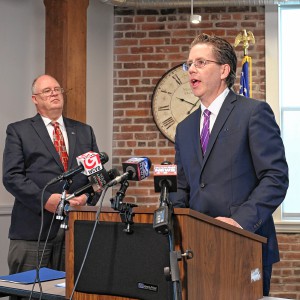 1989 homicide victim found in Warwick ID’d through genetic testing, but some mysteries remain
1989 homicide victim found in Warwick ID’d through genetic testing, but some mysteries remain
 Fogbuster Coffee Works, formerly Pierce Brothers, celebrating 30 years in business
Fogbuster Coffee Works, formerly Pierce Brothers, celebrating 30 years in business
 Greenfield homicide victim to be memorialized in Pittsfield
Greenfield homicide victim to be memorialized in Pittsfield
 Real Estate Transactions: May 3, 2024
Real Estate Transactions: May 3, 2024
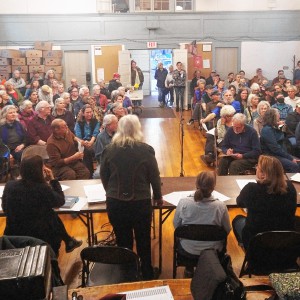 Battery storage bylaw passes in Wendell
Battery storage bylaw passes in Wendell
 As I See It: Between Israel and Palestine: Which side should we be on, and why?
As I See It: Between Israel and Palestine: Which side should we be on, and why?
“Periodically, the internet is down and I can’t get it up and going. The worst thing in the last month … since Feb. 4, my landline is not working,” Jubb said. “There’s some things I don’t dare do when my Lifeline is down … if you live alone, it’s pretty scary.”
“I try to maintain my independence by using these various services, but not to have either phone available to me?” she continued, noting her frustration.
While GCET doesn’t currently serve the Weldon and its 105 apartments for low-income and elderly residents, Lunt said internet infrastructure in old and historic buildings is a challenge recognized by every stakeholder in the process, including the government and cable companies.
“The FCC and the federal government have recognized that large buildings like this are a really specific issue; old buildings that are about 35 times as expensive to retrofit,” Lunt said. “It isn’t just Greenfield; there’s 100,000 of these buildings across the country and none of them are able to get it done because of the same issue with funding.”
Personal costs also area a concern, especially in the wake of the Affordable Connectivity Program’s (ACP) hazy future. The pandemic-era program covers internet costs for approximately 55,000 low-income residents in western Massachusetts, including several at last week’s listening session. Funding is set to run out in April, which could jeopardize their access to the internet. Approximately 11,000 people in Hampshire and Franklin County are subscribed to the ACP.
“The end of the Affordable Connectivity Program would be a lose-lose-lose,” said U.S. Sen. Ed Markey, who joined a press conference held at the affordable housing nonprofit Way Finders’ office in Springfield last week. “A loss for families, a loss for our economy and a loss for our democracy.”
Bradley said there are several grant opportunities addressing digital infrastructure approaching, while Desorgher said the city will be working to identify the areas of highest need first.
“This room represents things that are happening in other apartment buildings across the city,” Desorgher said. “I do believe this needed to happen yesterday and we need to put our shoulder to the wheel … I’ll do whatever I can.”
For more information about FRCOG’s digital equity planning services, visit its website at bit.ly/4a6Wo71.
Chris Larabee can be reached at clarabee@recorder.com.

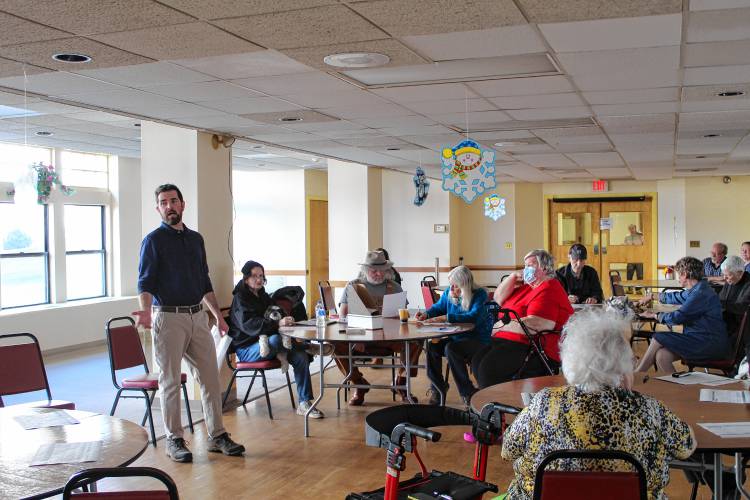
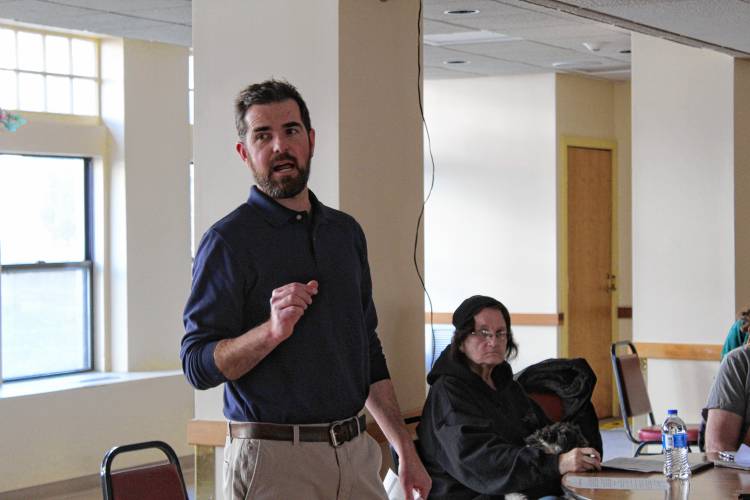
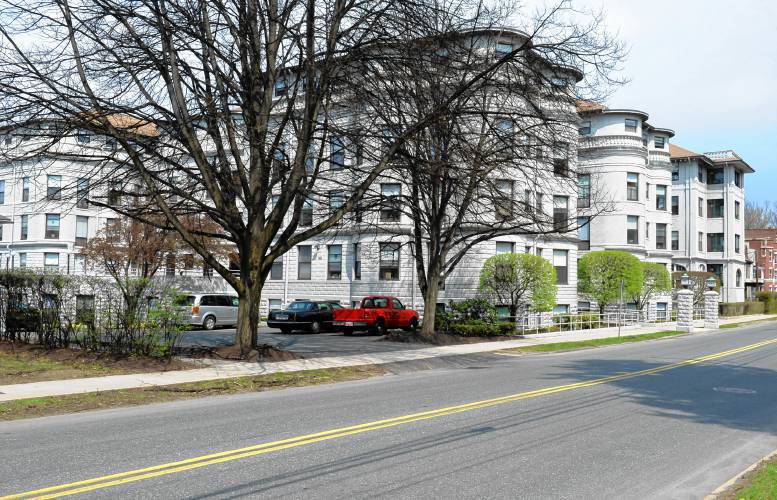
 Bridge of Flowers in Shelburne Falls to open on plant sale day, May 11
Bridge of Flowers in Shelburne Falls to open on plant sale day, May 11 Community Legal Aid expands Disability Benefits Project to Franklin County
Community Legal Aid expands Disability Benefits Project to Franklin County Wear Orange organizers prepare display to remember gun violence victims
Wear Orange organizers prepare display to remember gun violence victims Deerfield candidates, Whately incumbent discuss issues with voters at South County Senior Center
Deerfield candidates, Whately incumbent discuss issues with voters at South County Senior Center
